Messages For An Anxious Camper
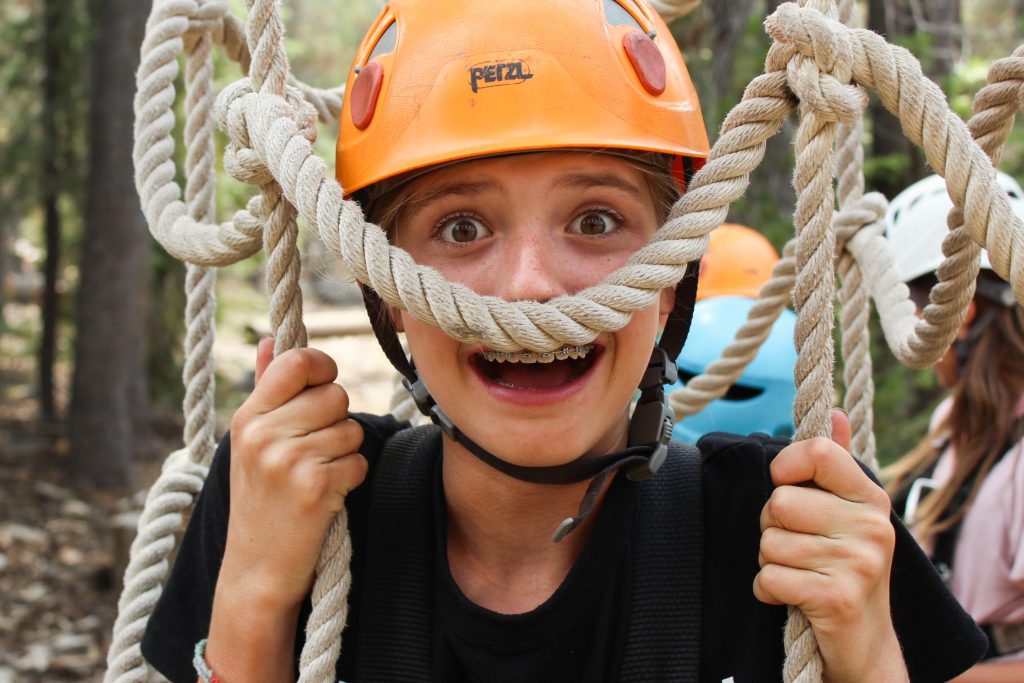
Read more of Sunshine’s camp-related posts at her website, Sunshine Parenting.
“Children want to be independent, and they realize that they cannot be truly independent until they beat homesickness, even when they have a painful case of it.”
– Michael Thompson, PhD., Homesick and Happy
Recently I spoke with a mom whose 11-year-old son is coming to camp in a few days. He’s nervous. He had a negative experience at a one-week science camp. He doesn’t think he can “make it for two weeks” and is worried he’ll be too homesick to make it at camp. I chatted with the mom and gave her some key messages to communicate to her son. She asked for them in bullet points in an email, and I thought there are probably others who might benefit from this same list, so I’m sharing this with anyone who has a child suffering from pre-camp anxiety.
Before I share my list, let me say that if you are not a camp proponent and don’t plan on sending your child to camp, you should probably not read any further. I am a huge supporter of camp and recently had a JC (Junior Counselor) tell me that “Camp made her who she is today.” So, I think that camp is a great thing for building kids’ independence and confidence. I have also seen many kids work through some pretty painful emotions at camp, so I know that camp is not easy for all kids.
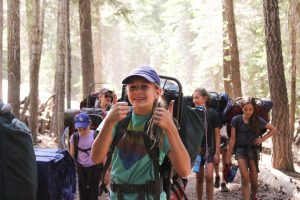 We have 7-year-olds at our camp who do great during our two-week sessions. They are the ones who’ve begged their parents to let them come to camp and generally have older siblings who’ve attended camp. I also talk to a lot of parents with older kids who “aren’t sure if they’re ready for camp.” One thing I’ve learned after close to three decades at camp is that the same kids who are anxious and hesitant about going to camp when they’re nine or ten will still be anxious when they’re 13. And they may not be interested in going away to college when they’re 18, either.
We have 7-year-olds at our camp who do great during our two-week sessions. They are the ones who’ve begged their parents to let them come to camp and generally have older siblings who’ve attended camp. I also talk to a lot of parents with older kids who “aren’t sure if they’re ready for camp.” One thing I’ve learned after close to three decades at camp is that the same kids who are anxious and hesitant about going to camp when they’re nine or ten will still be anxious when they’re 13. And they may not be interested in going away to college when they’re 18, either.
So, as a parent, you need to decide how to approach your child’s separation anxiety, as well as your own. You can avoid it and not send them to camp and hope that they develop independence in other ways, which is definitely possible. Or, you can bite the bullet, give them these positive messages, and send them off to camp with a smile, knowing that it may be hard for them, but they will grow from the experience.
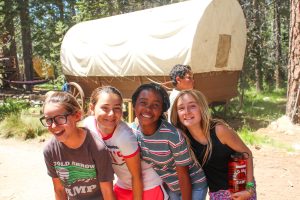
In Michael Thompson, PhD.’s book Homesick and Happy, he says “It is the very challenge of camp that makes it such a life-changing experience for so many children.” I know there are many parents and children who just can’t stomach the idea of going through some painful time apart. Again, you need not read further if you are not sending your reluctant child to camp.
This post is for those of you who have decided that your child is going to camp, and especially for those of you who had a previously excited camper who is now having last-minute camp anxiety. Here are some messages you can give prior to dropping your camper at the bus or at camp. Pick and choose, and of course, use your own words, but acknowledge your child’s feelings and empathize with them while holding firm in your confidence in their ability to succeed and your belief that camp will be good for them.
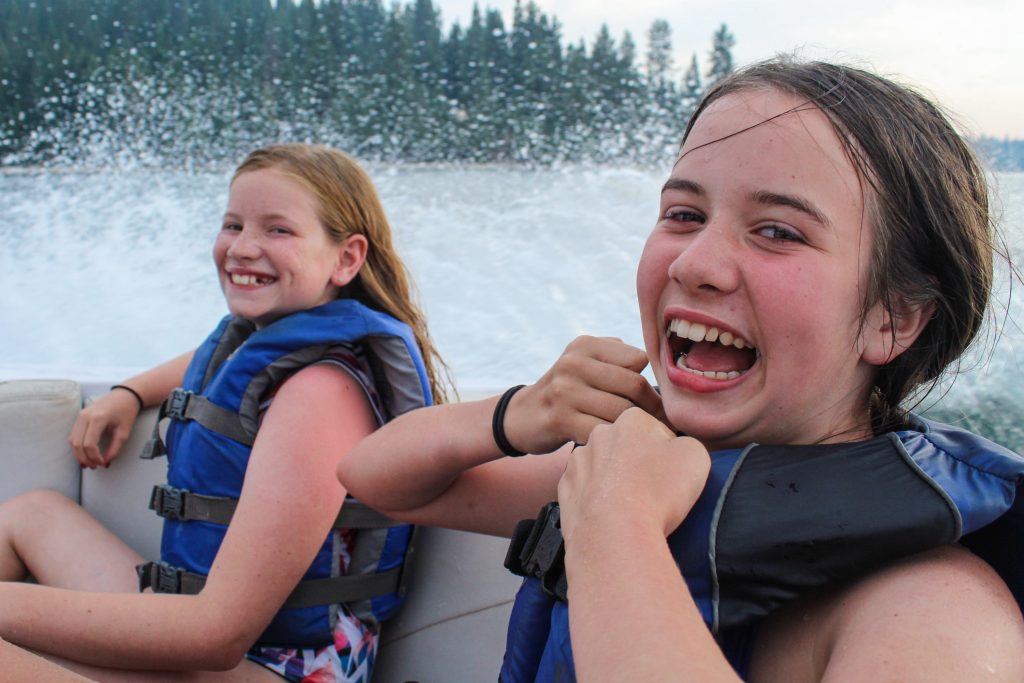
Without further ado, here are some messages to give to your anxious camper:
-
Let them know that missing home is okay.
“You may feel homesick, and that’s okay. A lot of kids feel that way. That just means that you love us and you love home. I feel homesick when I’m on trips, too. Missing home is part of life. But I know you can still have fun at camp, even if you feel sad sometimes.”
-
Reassure them that there are people at camp who will take care of their needs.
“There are adults at camp (counselors, directors) who are there to take care of you and help you with anything you need. They can help with things you normally come to me about. Let them know if you are feeling sad, and they can help you. They have lots of experience working with kids who are away from home for the first time.”
-
Talk with your child honestly about the importance of starting to develop some independence.
Something along the lines of: “It may seem like a long way off, but in a few years, you’ll be ready for college. I want you to feel confident in your ability to live away from me so that you can choose any school you like, even if it’s far away from home. Think of camp like your practice time for when you’re older and ready to move away for school or a job. You’ll get better at being independent by starting now, when you’re young, with short spurts of time away. Some kids aren’t doing well when they start college because they don’t have any experience being away from home. I want you to feel great when you go to college because you’ll know that you’ve already been successful with short camp stays.”
-
Share the reality that many good things in life come with some pain and failure.
If you have a story from your own life of something that you had to work hard at or had to go through difficulties in order to master, this is a great time to share. Something along the lines of, “Many good things in life aren’t easy at first. Learning a new sport or trying something new is really hard. Sometimes you have to get out of your comfort zone to discover something you really love. If you never go through anything hard, you’re going to miss out on some great experiences. The first few days of camp may be hard, and that’s okay. I know you’ll work through it and figure out what makes you feel better. I have confidence in you, and I am so proud of you for going to camp and trying this new adventure!
-
Let them know that you are confident in them.
“I am so excited that you get to go to camp this year. I know it’s going to be such a great experience for you and that you are ready for this.” If you went to camp, share with your camper what you liked about it and how you grew from the experience.
-
Make sure they know you want to hear about everything.
“Every day comes with its good and bad parts. When you’re at camp, I want you to write me letters and tell me all of the stuff that you’re doing and feeling. If you feel homesick at rest time, tell me about it, and also tell me what you did to help yourself. Did you talk to your counselor? Keep yourself busy playing cards with friends? Write me a letter? I also want you to share good stuff. Did you get your favorite food for lunch? Try rock climbing? Get up on a kneeboard? I want to hear both the good and bad things about camp in your letters.”
-
If your camper asks you if you will pick him up if he’s sad, you need to let him know that you are not going to pick him up early.
“Even if you’re a little homesick for the whole time you’re at camp, you’re going to feel so much better about the experience if you stick it out and make the best of it. Most kids feel better after a few days of getting settled in and adjusted, and I know you’ll feel great once you let yourself relax and just start enjoying all the fun things at camp. I’m not going to pick you up early, no matter what, because I know you will feel really proud of yourself for making it through camp, even if you have some hard days.”
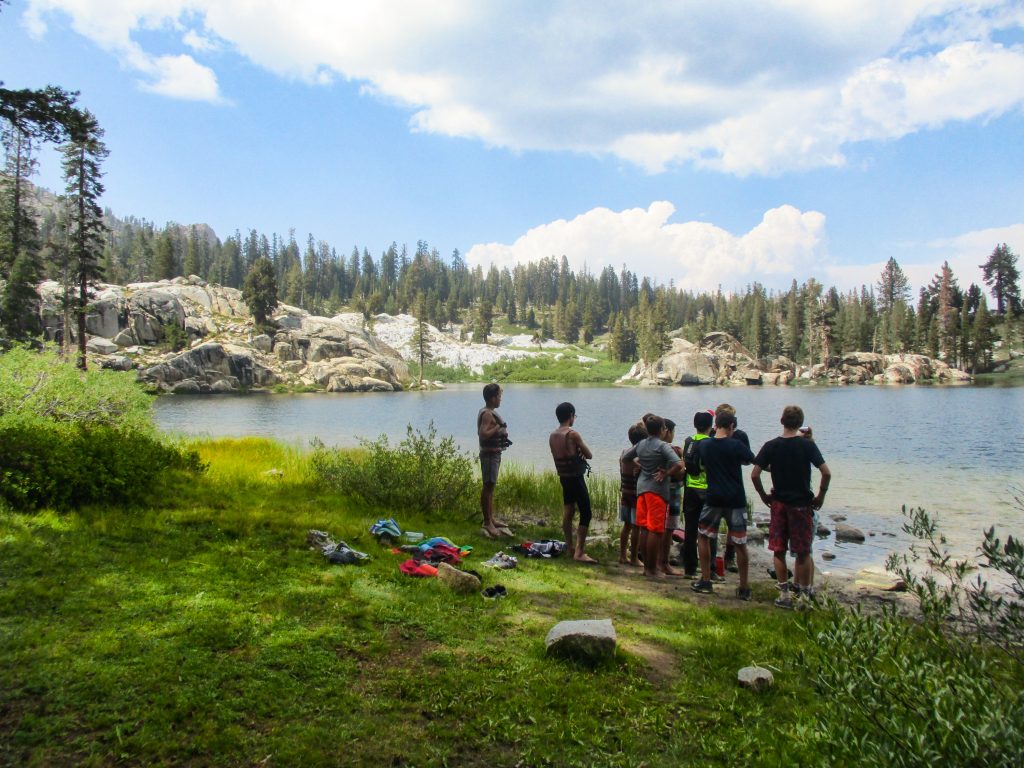
In Homesick and Happy, Thompson says, “Homesickness is not a psychiatric illness. It is not a disorder. It is the natural, inevitable consequence of leaving home. Every child is going to feel it, more or less, sooner or later. Every adult has had to face it and overcome it at some point in life … If you cannot master it, you cannot leave home.”
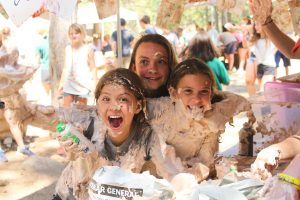
I would like to note that you do not need to use all of these messages but instead choose the ones you think will resonate most with your child. What’s most important is that you express confidence in your child and in the camp experience. These same messages would be great as responses to a sad letter you receive from your camper.
I always tell the kids that the fun and happy feelings at camp usually far outweigh any sad feelings. Many kids tell me they “don’t feel homesick at all,” but there are some who struggle, especially during their first summer. Those kids seem to grow the most and feel the most pride in their accomplishment of staying at camp. If you are feeling worried about how your child will do at camp, know that you are giving your child a precious gift by allowing them this special time where they get to grow their wings.
Five Reasons Every Teen Should Go To Summer Camp
By Audrey “Sunshine” Monke. Originally published at Sunshine Parenting
#1 Improve Interpersonal Skills & Form Close Friendships
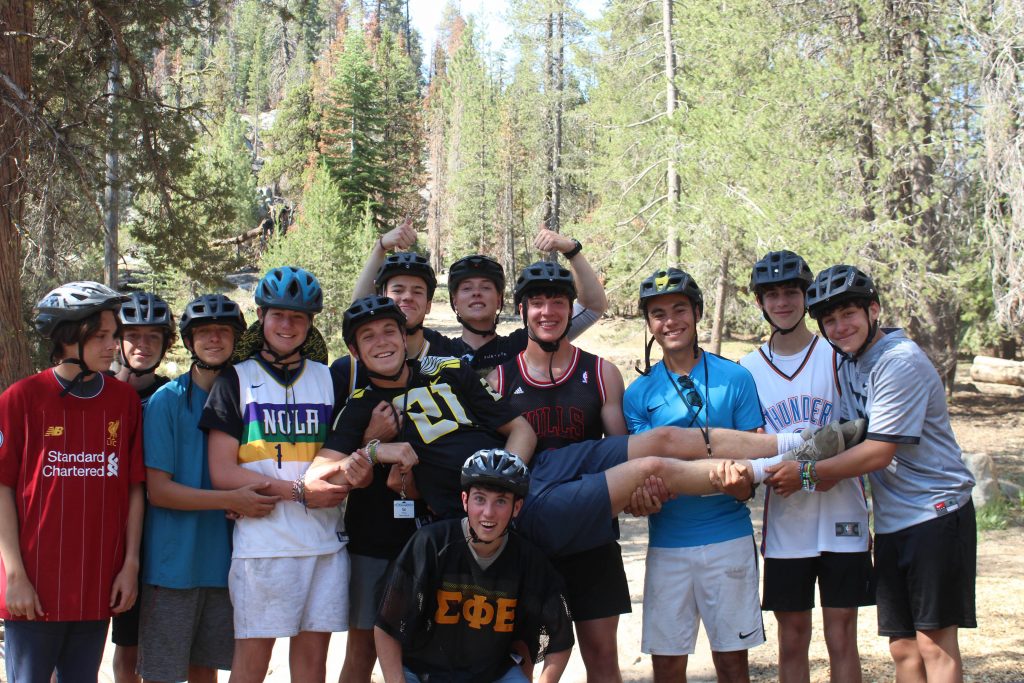
“In a … study of 515 senior executives, emotional intelligence was a better predictor of success than either relevant previous experience or high IQ.” -Forbes, “Look for Employees with High EQ over IQ”
In a world where anyone can look up a fact or equation and where machines are replacing even complex workplace tasks, employers need employees who can interact effectively with other people. This is one of the most important skills teens learn at camp. In the unplugged, non-competitive camp culture, teens build up their “emotional intelligence” (EQ), their face-to-face communication and relationship skills. 21st-century employers need people who can communicate, collaborate, and cooperate with others, and teens who come to camp get to practice those skills every day.
If you are debating whether your teen can miss a few weeks of SAT prep or a summer academic program, know that the 1600 SAT score will never outweigh the important communication and relationship skills he or she will develop at camp. Whether on a backpacking trip, cheering each other through a ropes course, or chatting around the campfire, the interpersonal skills teens build are the same ones they’ll need to be successful adults in families, communities, and companies.
#2 Take Safe Risks and Challenges
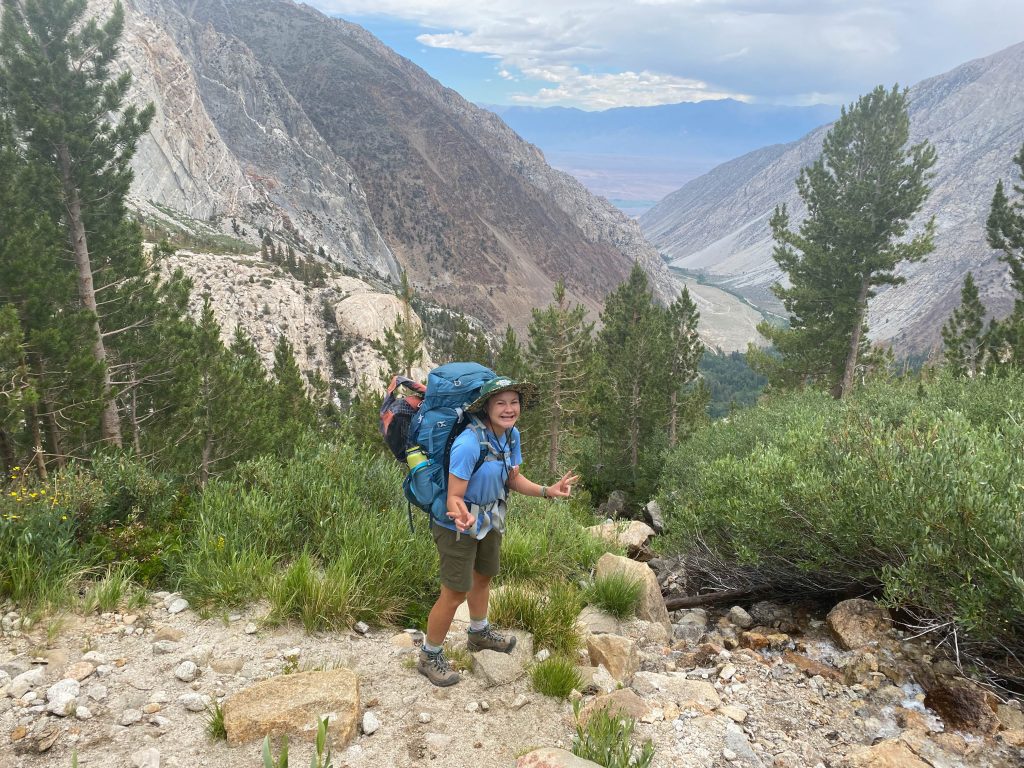
Teens thrive on risk. Thanks to recent findings (described in Age of Opportunity and Brainstorm) about the unique attributes of the teen brain, we now understand the reason for the “mortality bump” for 17-year-old boys. They do stupid, daring things not because they aren’t aware of the dangers, but because—to them—the reward of leaping from a rocky cliff or speeding along a curvy mountain road seems to outweigh the risk.
A teen at camp has the opportunity to take many safe, controlled risks. Climbing to new heights on a rock wall or ropes course, jumping the wake of a boat on a wake board, or reaching the peak of a 10,000-foot summit are all healthy risks teens take at camp. Plus, being in a controlled camp environment frees teens from exposure to health risks like alcohol and drug use.
#3 Experience Character Growth and Develop Life Skills
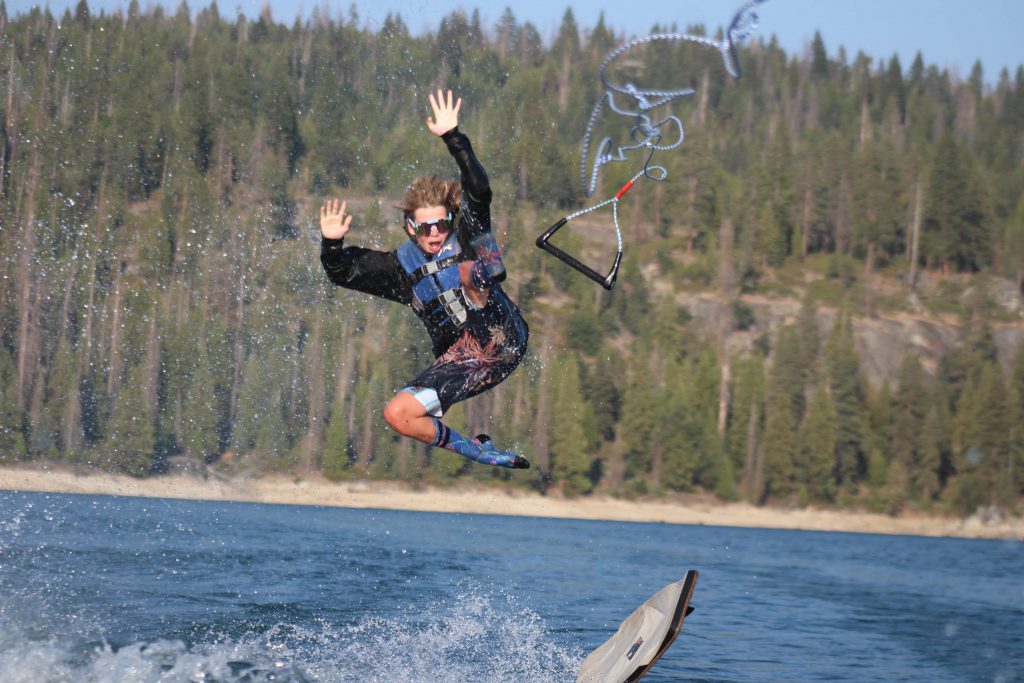
“A profound gap exists between the knowledge and skills most students learn in school and the knowledge and skills they need for success in their communities and workplaces.” –Partnership for 21st Century Skills
Schools aren’t doing a very good job teaching kids grit, perseverance, and leadership. But that’s not their job. Rather, schools are VERY busy teaching the core curriculum and assessing how well our kids know it. No school has time to see how “gritty” a kid is, but at camp, the “grit-meter” is always running, and it’s personal character—not a report card or an athletic achievement—that rises to the top.
Teens also develop other important life skills at camp, including independence, responsibility, and decision-making. Teens grow considerably in an environment away from their parents where they are forced to live on their own and find their own resources.
#4 Meet Positive Role Models
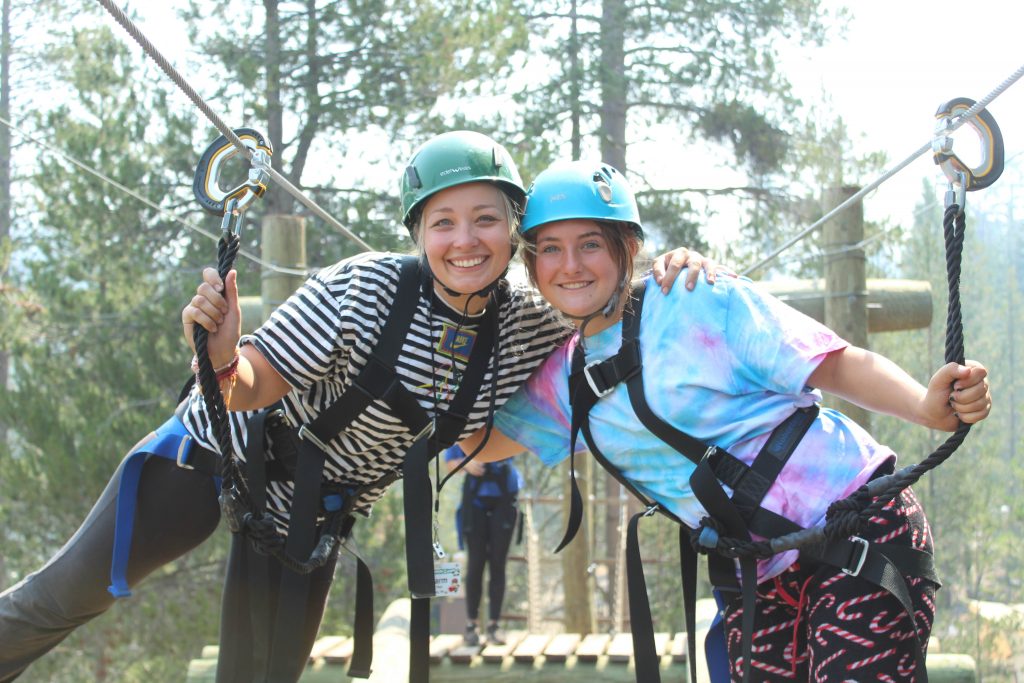
Watch or listen to a popular music video, reality TV show, or sports event, and you’ll be hard-pressed to find positive young adults teens can emulate. But walk into any well-run summer camp and you’ll be surrounded by wholesome, outdoorsy young people who like being around others and doing fun activities. Camp offers teens the opportunity to be among young adults who are positive role models and to form close relationships with them. Most camp counselors are hard-working college students who want to serve others. They are friendly, personable, and are just the kind of young adults you want your teen to become.
#5 Discover Their Best Self
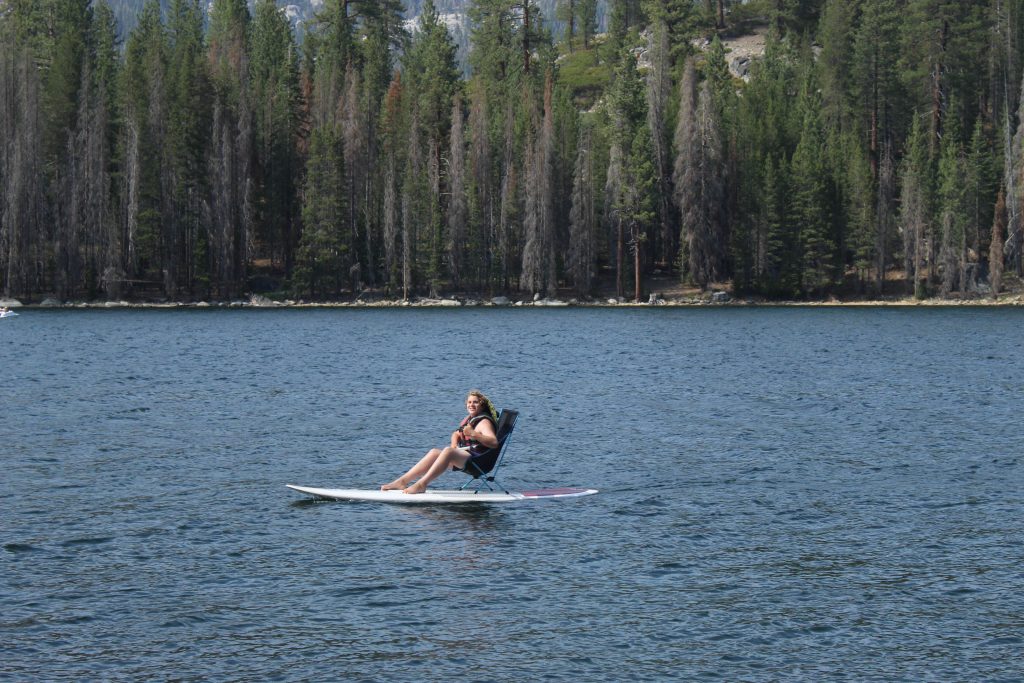
We live in a world where teens—often by their own parents—are steered towards success via the SAT, the college admissions grind, a “good” major, and a high-salary job. Look around at many adults, however, and see where that path got them. Despite knowing better, we still expose our kids to the same gauntlet.
Perhaps college education is the best option for most young people, but I’ve met many who are halfway done (or all the way done) and still don’t know who they are or what they are passionate about. Camp experiences offer teens the chance to step back from the treadmill of academics, competitive sports, and their sleep-deprived, over-scheduled existence, and instead think about what’s important to them. Many campers become less self-absorbed after spending a few weeks at camp, learning to train their focus on others. They also discover new hobbies and avenues to pursue in education and their future careers.
Each summer, tens of thousands of teens leave their phones and car keys at home and head to summer camp as campers, counselors in training, or counselors. Many teens who have never been to camp cannot relate to how a teenager could make such crazy personal sacrifices. And yet, teens are the age group that fills most quickly at many camps. Because, perhaps more than any other time during youth, camp offers the respite, recreation, and renewal to help teens thrive. Teens who have already been to camp know this and want to come back, year after year.

Gold Arrow Camp offers a Junior Counselor Program for returning GAC campers and an Outdoor Leadership Course for teens (grades 9th-11th).
Originally published at Sunshine Parenting.
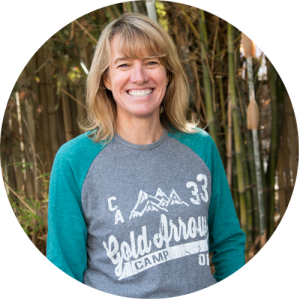
Audrey “Sunshine” Monke, MA, has been the owner of Gold Arrow Camp since 1989 and currently serves as the Chief Visionary Officer. In addition to her vision-casting and mentoring at GAC, Sunshine is an author (Happy Campers: 9 Summer Camp Secrets for Raising Kids Who Become Thriving Adults), podcast host, speaker and coach on the topics of parenting, social skills, and happiness. Find out more at her website, Sunshine Parenting.
Visit Sunshine Parenting for more summer camp-related posts & podcast episodes.
The Gift of Handwritten Letters
Recently, I’ve been going through the many boxes of letters, photos, and memorabilia which I have collected over my first five decades. It’s been a time-consuming task, but I’m trying to organize into a smaller number of boxes what has been accumulated over the first half of my life. What has struck me most is the huge number of letters I amassed from my childhood, high school, and college friends. Until this week, I didn’t remember how much we corresponded, but I just finished going through hundreds of letters. I now have proof of the many friendships that were solidified over hours of writing to one another.
I mostly have the ones written to me, but I can assume from the “Thanks for your letter”s that I was writing at the same rate as my friends were. Maybe some of my letters are in a box out there somewhere?
 Not only was there a huge volume of letters (see picture), some of the letters were ten pages long, with tiny writing. Others were short notes or fun greeting cards. Most of them were in beautiful, cursive writing, even some from boys! What an amazing thing to think about. Back then, without the distractions we all have today, we had TIME to write letters like that! Plus, we enjoyed it and we were good at it! We wrote letters because often long-distance phone calls were too expensive. Many of us traveled and studied overseas, so the letters chronicle our trips.
Not only was there a huge volume of letters (see picture), some of the letters were ten pages long, with tiny writing. Others were short notes or fun greeting cards. Most of them were in beautiful, cursive writing, even some from boys! What an amazing thing to think about. Back then, without the distractions we all have today, we had TIME to write letters like that! Plus, we enjoyed it and we were good at it! We wrote letters because often long-distance phone calls were too expensive. Many of us traveled and studied overseas, so the letters chronicle our trips.
The process of trying to get rid of most of this paper required that I at least skim through each one. I pulled out many that I simply can’t bear to throw away. I found letters from my late grandparents, with their words of wisdom. I found letters my parents had written to me over the years. I also found letters from friends showing major teen angst, which is a good reminder now that I have teens of my own. We weren’t that different back then after all! It’s just that we didn’t splash our anger and sadness at each other on Facebook. We wrote each other heartfelt notes.
One thing I realized is that my kids will not have a big box of letters like mine. They don’t write letters like we did in the pre-computer, pre-email, pre-social networking, pre-cell phone era. But then I had a revelation! They DO still get to send and receive letters. It’s when they’re at camp! I have told parents how much campers enjoy getting “real” mail while at camp (the kind with a stamp), but now I have realized another benefit – they will have these letters as keepsakes and memories of their childhood. And you, as parents, most definitely should save all of the letters you get from your camper!
Among my box, I came across a postcard I sent to my parents in 1977, when I was a camper at Gold Arrow Camp. This is what it said:
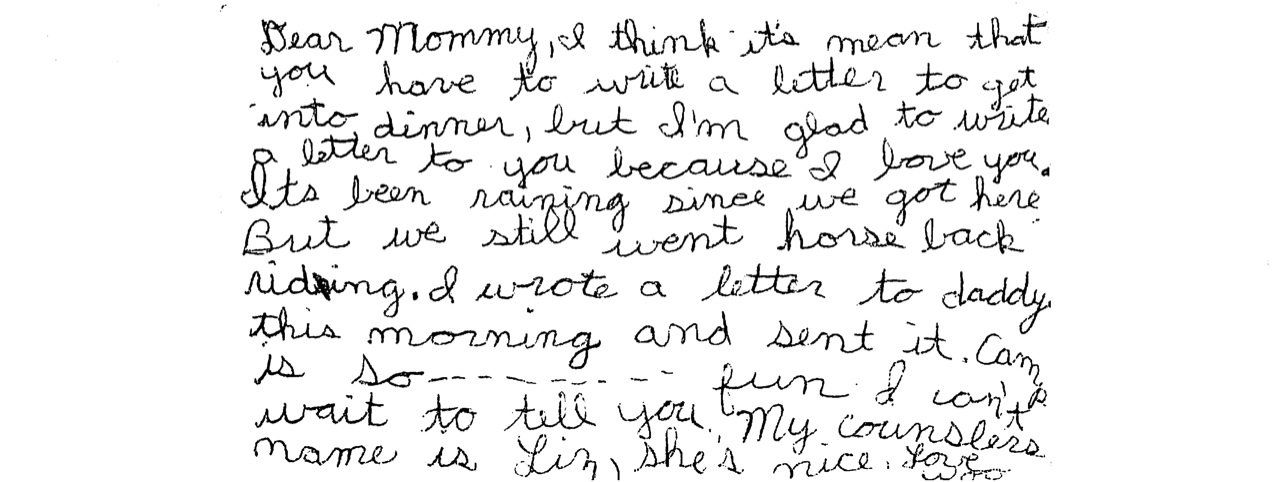
My postcard home from camp, 1977.
“Dear Mommy,
I think it’s mean that you have to write a letter to get into dinner, but I’m glad to write a letter to you because I love you. It’s been raining since we got here. But we still went horseback riding. I wrote a letter to daddy this morning and sent it. Camp is so fun. I can’t wait to tell you. My counslers name is Liz. She’s nice.
Love, Audrey”
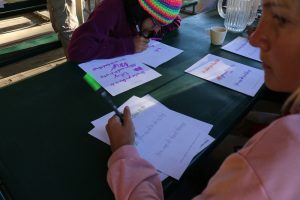 Let me tell you, we have gotten some good laughs in our house over this postcard. Not just about how I spelled “counselor,” but about my comment about the “Mail Meal” (dinners on Wednesday and Sunday that you need to have a letter or postcard home as your ticket in). The dreaded “Mail Meal” has been a camp tradition for as long as anyone can remember, but I didn’t even remember thinking it was a bad thing. My adult view is much different than my ten-year-old one! I now understand how much parents need those letters. I hope most kids get beyond the “I have to write this letter” part, and share some of their feelings and memories of camp. The resulting memorabilia will be priceless.
Let me tell you, we have gotten some good laughs in our house over this postcard. Not just about how I spelled “counselor,” but about my comment about the “Mail Meal” (dinners on Wednesday and Sunday that you need to have a letter or postcard home as your ticket in). The dreaded “Mail Meal” has been a camp tradition for as long as anyone can remember, but I didn’t even remember thinking it was a bad thing. My adult view is much different than my ten-year-old one! I now understand how much parents need those letters. I hope most kids get beyond the “I have to write this letter” part, and share some of their feelings and memories of camp. The resulting memorabilia will be priceless.
So, here’s to another benefit of camp I’ve only this week realized. We have the chance for our kids to experience the (almost) lost art of writing and receiving handwritten letters. And you, as a parent, have a chance to write down words that your child will be able to read and keep long beyond any email you’ve sent them!
P.S. Did you see this hilarious book? P.S. I Hate it Here: Letters from Camp It is full of some really funny, real letters kids wrote to their parents from camps.
The Magic of The Campfire
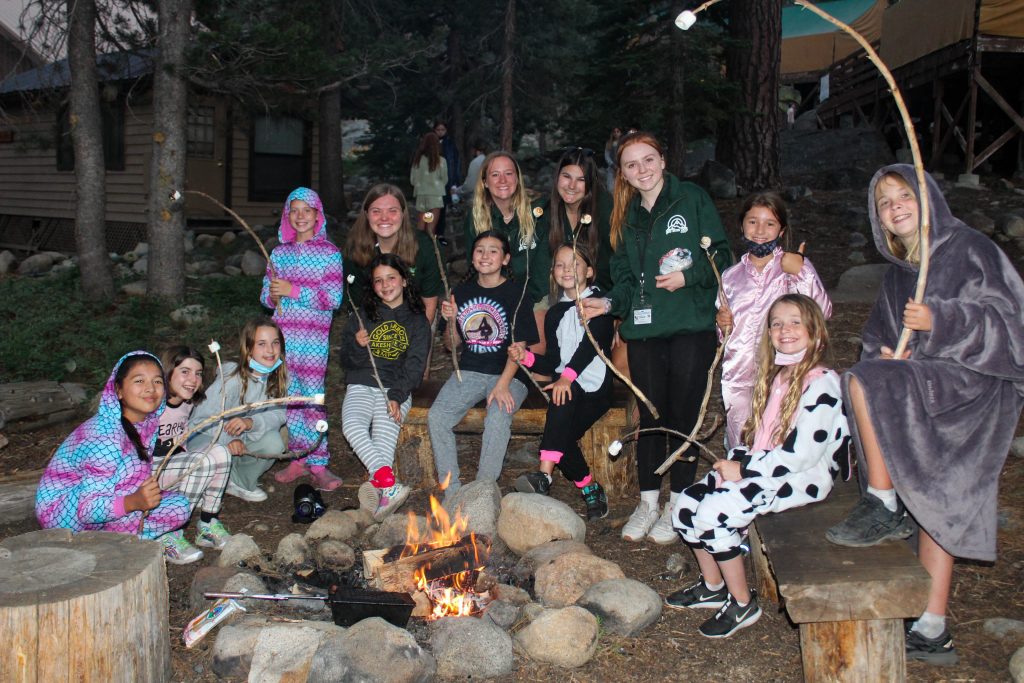
by Andy “Soy” Moeschberger
My single favorite time of day at camp is campfire. Every night each of our 31 cabins has its own campfire unless the cabin is at a social (a campfire with another cabin) or our dance. Why do I love this time of day so much? In part because I love the smell of woodsmoke. In part because it means the day is winding down and I’ll be in bed within the next 3 hours. But mostly because of the magic.
What could be so magical about a campfire? Some logs, some pine needles, a match, and some popcorn. That’s simple and fun, but it isn’t magic.
I beg to differ. I think that the time spent around a campfire is magic. It’s transformational and powerful in the way that nothing else I have experienced in my life is. When a group of 10 friends is gathered around the flickering flames under a blanket of stars they can and will share truths that are more lasting and meaningful than if they were in a game room or around a dining room table.
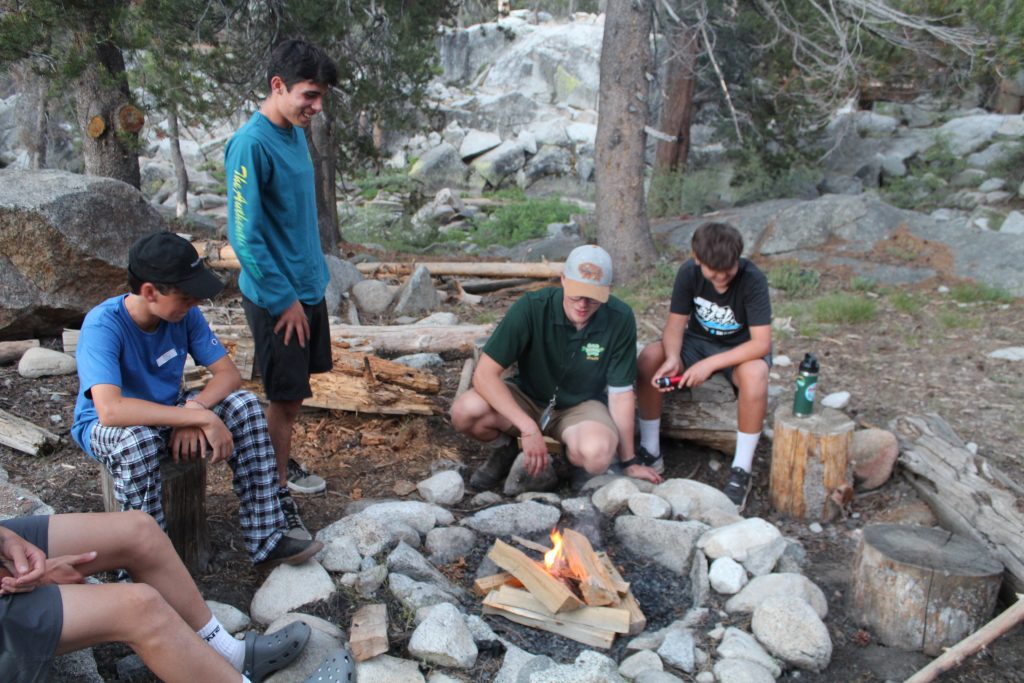
But why? What is it about the campfire that makes this possible? Well, maybe it isn’t magic. Maybe it’s science. According to a study from the University of Alabama, adults who were exposed to a “fire with sound condition” (a video of a fire with the sound turned on) showed lower blood pressure and increased “prosocial” behaviors (such as smiling, making eye contact and engaging in conversation). And that was a VIDEO of a campfire with an adult by themselves! The authors hypothesize that this is an evolutionary development. They believe that for ancient humans the fire provided warmth and a way to cook, and also signaled the safety of numbers. Our ancient forerunners knew that by being around the campfire they could relax. Even a millennium after we moved indoors, our minds still subconsciously know that a fire is a place where we are safe.
Children need this more than ever today. The pressures of the world increasingly weigh on young people. If they can have an opportunity to feel, like the cavemen of old, relaxed and safe, then they can begin to become their best selves. The campfire is a natural way to do that. As I tell our graduating campers at their Paddle Ceremony, the most meaningful moments of their camp careers probably occurred around a campfire.
Many camps have only occasional campfires, or “flashlight” fires. While there are benefits to that, we know the nightly practice of an actual campfire is important. Our counselors are trained specifically on campfires. The training is far more than how to stack the logs and what the ideal marshmallow looks like. Indeed, they practice in our training how to lead a meaningful discussion around the fire. They lead campers in sharing their highs and lows of the day. They help to facilitate discussions about real life topics that campers are interested in or struggling with.
On our last night of camp, we gather for an all-camp campfire that we call Appreciation Campfire. There are songs and stories and skits. Off to the side of our amphitheater (which we call Big Campfire!), there is a campfire pit, where the logs crackle away merrily. As the night winds down, the flames grow lower and lower. At the end of the night, counselors share their appreciation for their cabins by candlelight as the last embers of the campfire glow.
That’s just a last tiny piece of magic before we go home.
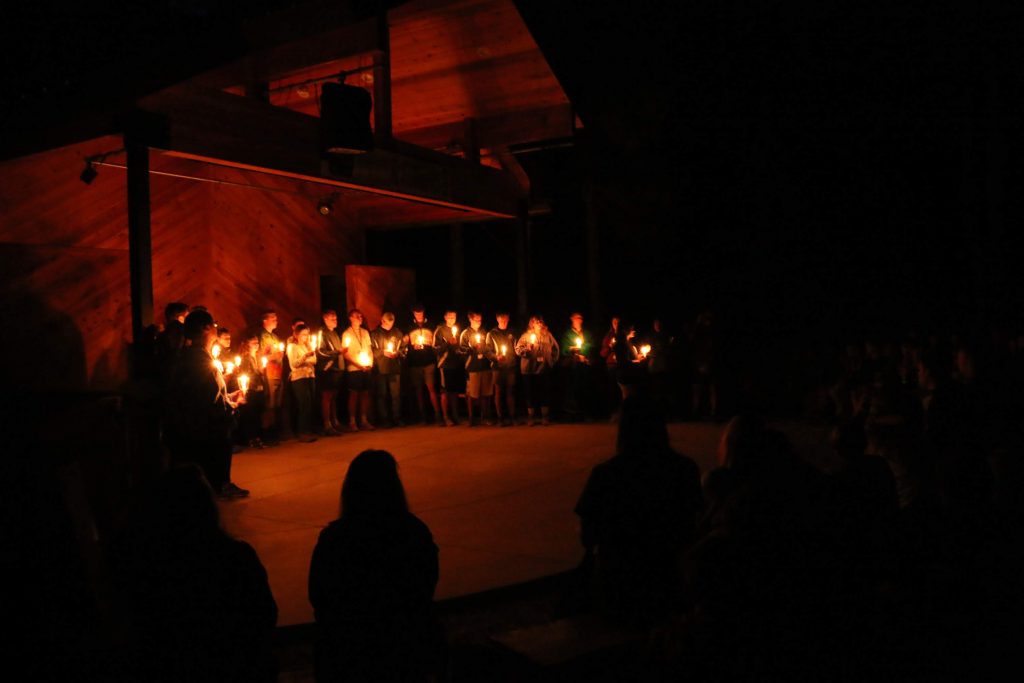
The Blessing of the Least Favorite Activity
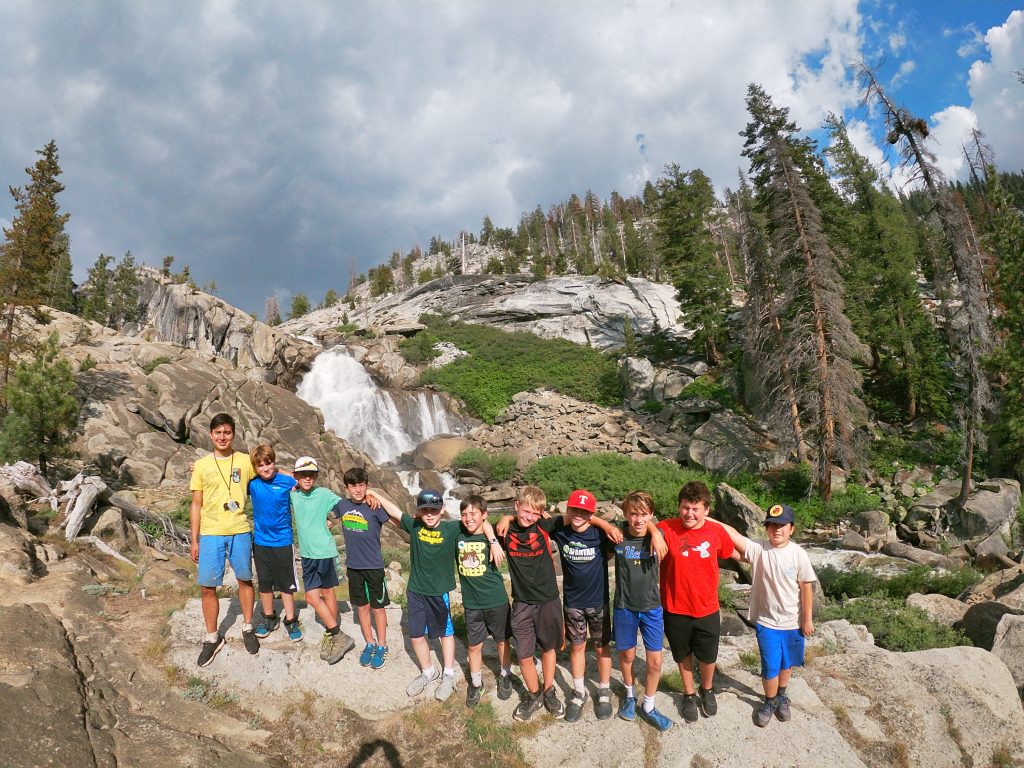
by Audrey “Sunshine” Monke
Wendy Mogel’s best selling book, The Blessing of a Skinned Knee, resonated with me. I can relate much of her message to camp and to my own family. I heard Dr. Mogel speak at a conference several years ago, and she continues to be active in the camp community. Many of our camp parents have heard her speak at school parenting events or have read her book. If you haven’t had a chance to read The Blessing of a Skinned Knee, I highly recommend it. In addition to sharing about the importance of letting our kids take healthy risks, and not always rescuing them from failure, Mogel gives many other valuable insights. She has recognized the value of camp experiences in the development of emotionally healthy kids, as you can read in the article “Camp Blessings” on her website.
A question I often get asked, especially by kids who haven’t yet been to GAC, is “What if I don’t want to do an activity?” Sometimes it starts with a statement, “I don’t like horses. Do I have to do that activity?”
My short answer is, “You won’t be forced to do any activities, but you will still go with your group, and you will be encouraged to try.”
I think there are three main reasons kids don’t want to do a particular activity, and they are the same reasons why adults often choose to forgo some recreational options:
1. A previous negative experience with the activity, usually not at camp and not with experienced instructors.
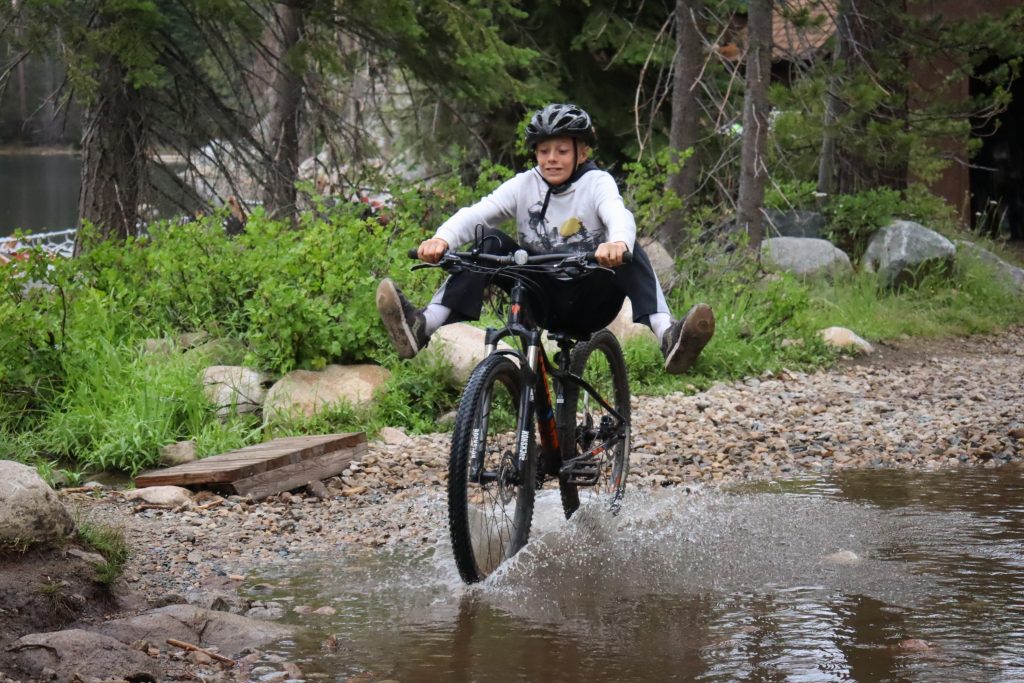
Falling off a horse, being dragged behind a ski boat and not getting up, or getting lost on a hike are all examples of negative experiences that make a person naturally inclined not to want to try again.
2. Fear!
Fear of being humiliated. Fear of failure. Fear of heights. Fear of deep lake water. Fear of rocks. Fear of going to the bathroom in the woods. Fear of getting hurt. The list goes on and on.
3. Based on their perception of themselves or their past successes/failures, they think they won’t like it.
It’s not in their normal repertoire of things they like and/or are good at.
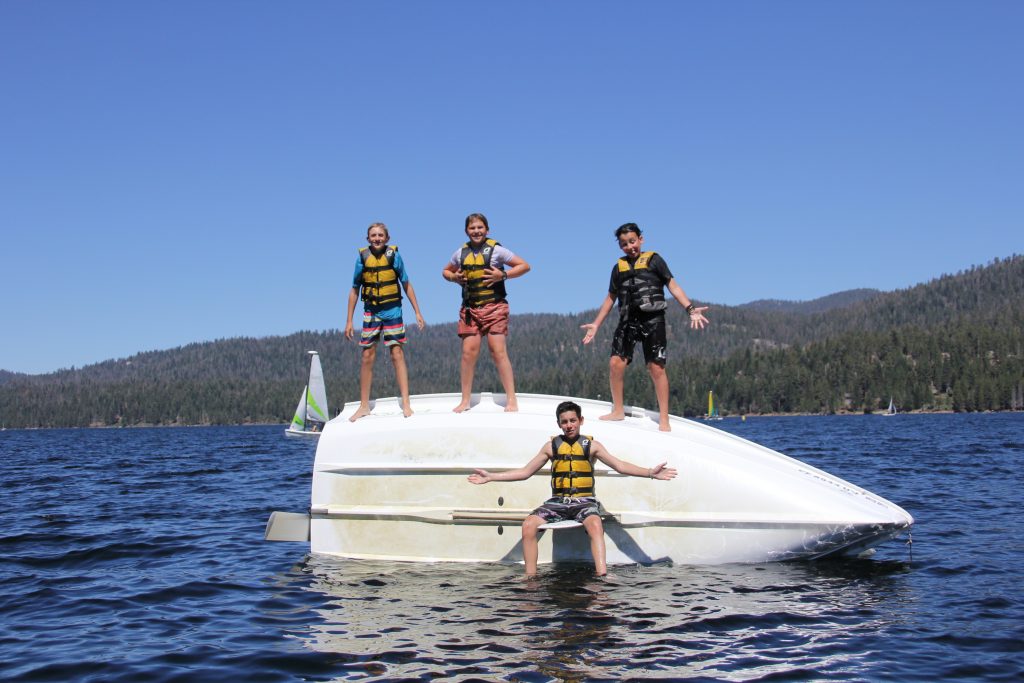
I’m sure there are other reasons for kids to not want to do an activity, but these are three that readily come to mind from what campers have told me over the years. Interestingly, the reasons kids don’t want to do an activity are the very reason for trying the activity and may be the best thing that happens at camp for that camper.
If a child doesn’t want to do an activity because of a previous negative activity, trying it at camp could lead to either a changed mind (and a new activity they like) or, at the very least, a not-as-negative experience to remember.
If a camper doesn’t want to do an activity because of fear, then trying the activity could be the most life-changing 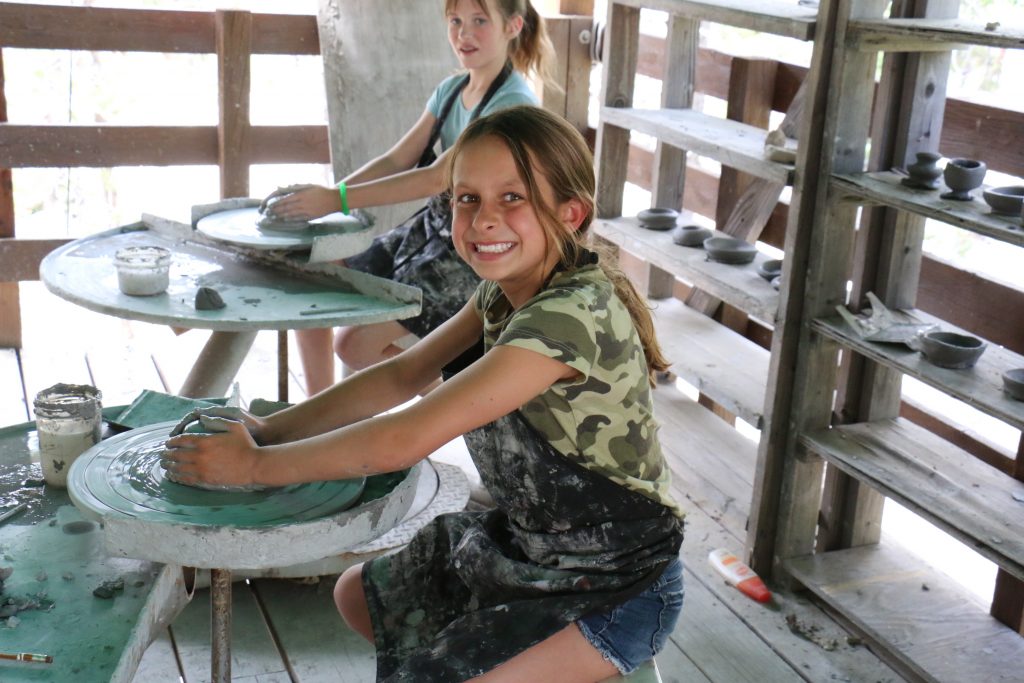 event that occurs for that camper during their camp stay. Overcoming fears and challenging oneself to attempt something that seems impossible can lead to great feelings of accomplishment and improved confidence. With the support and encouragement from cabin mates and counselors, campers feel on top of the world after successfully trying something they feared. For the camper with a fear of heights, climbing half-way up the ladder on the high ropes course will be celebrated as a huge accomplishment, and one that can make him/her proud. This is an example of something hard that leads to something good, a theme that Dr. Mogel stresses. The camp environment offers a supportive place for kids to learn how to overcome fears and accomplish things they didn’t think were possible.
event that occurs for that camper during their camp stay. Overcoming fears and challenging oneself to attempt something that seems impossible can lead to great feelings of accomplishment and improved confidence. With the support and encouragement from cabin mates and counselors, campers feel on top of the world after successfully trying something they feared. For the camper with a fear of heights, climbing half-way up the ladder on the high ropes course will be celebrated as a huge accomplishment, and one that can make him/her proud. This is an example of something hard that leads to something good, a theme that Dr. Mogel stresses. The camp environment offers a supportive place for kids to learn how to overcome fears and accomplish things they didn’t think were possible.
If a camper doesn’t want to do an activity because they don’t think they’ll like it based on their preferences or perception of themselves, trying something different offers an opportunity for expanded confidence. A camper who sees himself as non-athletic and more adept at target sports may shy away from the more physical activities, yet trying and accomplishing them could change his perception of himself in a positive way. A camper who likes shopping and clothes and sees herself as not an “outdoorsy” kind of person may dread going on a backpacking trip. Yet, the experience of cooking and sleeping outdoors could lead to an expanded view of herself and an appreciation for the many different facets of a personality. Sometimes, the activity a camper thought would be their least favorite becomes a favorite!
So, when a camper tells us all the reasons why they “don’t want to” or “can’t” do an activity this summer, we will continue to encourage them to “give it a try,” because we know the hidden blessings in the least favorite activity.
Too Much Screen Time? Camp Can Help!
By Audrey “Sunshine” Monke, originally published at Sunshine Parenting.
I’ve learned to face my fears, I’ve tried new things, and I have learned that you don’t always need to have your phone or video games.
-Kimberly, Camper
Children between eight and ten years old currently spend nearly eight hours a day on media. Adolescents average nearly eleven hours per day, seven days a week, on screens. The negative impact of this digital lifestyle is evident in kids’ expanding waistlines as well as their growing lack of interest in being outdoors. Now there’s an additional worry about the impact of our kids’ excessive screen use: anxiety.
In a New York Times article—Why Are More American Teenagers Than Ever Suffering From Severe Anxiety?—Benoit Denizet-Lewis writes, “Anxious kids certainly existed before Instagram, but many of the parents I spoke to worried that their kids’ digital habits—round-the-clock responding to texts, posting to social media, obsessively following the filtered exploits of peers—were partly to blame for their children’s struggles. To my surprise, anxious teenagers tended to agree.”
Anxiety is on the rise—among children, teens, and adults—and our screen time is exacerbating the issue. The problem is not just with teens. Adults are modeling this uber-connected life and experiencing a similar rise in anxiety. Ubiquitous screens are all that this anxious generation has ever experienced, and as parents, we can feel powerless to stop devices from overtaking our family’s lives.
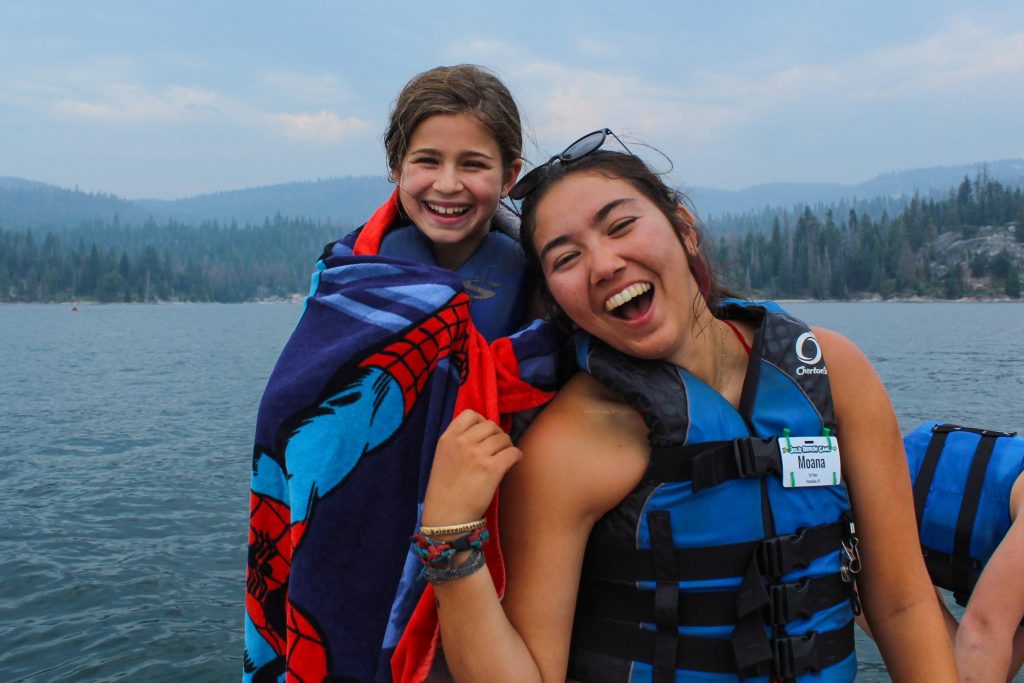
Whether sending or receiving SnapChat messages, watching YouTube videos, scrolling on Instagram, playing video games, or taking 100 selfies to find the best angle, our children are inundated with digital input while also feeling pressure to post the “right” things. The attraction of media is hard to resist, so most of us (including parents) simply succumb to having the near-constant presence of our electronics.
Many of us find it difficult to drag ourselves away from our laptops and smartphones, and often our schedules and lifestyles don’t allow for adequate time to just be outside and enjoy our natural surroundings. Richard Louv coined the term “Nature Deficit Disorder” in his book Last Child in the Woods to describe the alarming trend of children spending less and less time outdoors. Whether due to sensational media accounts of lost hikers that have fanned parental fears, or simply a lack of time in over-scheduled lives, children simply aren’t outside playing as much as they used to. Instead, they’re inside on their screens.
I don’t think anyone would debate that we all need to unplug more, but it’s very difficult to actually get kids off their screens, especially now that many schools are operating virtually, and most kids have their own smartphone by middle school.
Recently, I interviewed a mom who gave clear instructions before her twelve-year-old daughter’s birthday slumber party: devices would NOT be allowed. But this mom, unfortunately, is still the exception, not the rule. She lamented that when her kids go to other people’s houses, they complain that all the kids do is play on their devices the entire time. While we can get our kids to turn off and put away screens at home, it’s difficult to monitor them when they’re not at home. And, unfortunately, kids are drawn to homes where screens are not as limited.
While a few weeks at camp is not the only answer to all the screen and anxiety problems, camp experiences can be a great salve for our kids. Breathing fresh air, connecting face-to-face, and not worrying about “likes” and what they’re missing, kids relax and enjoy themselves. And they report feeling happier and less anxious.
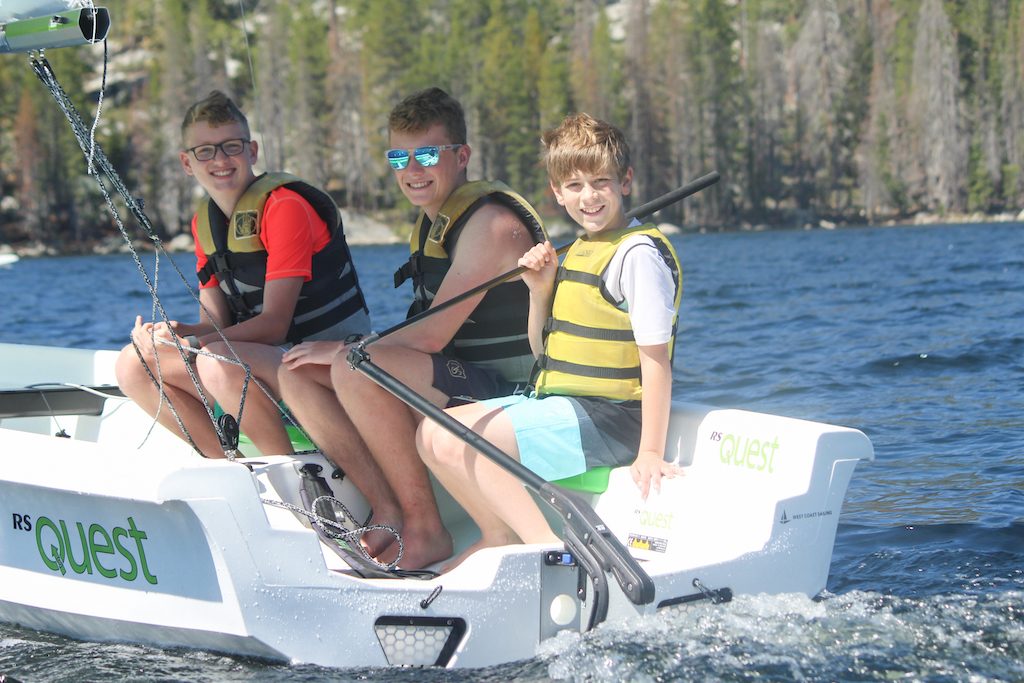
Here are four ways summer camp can help with the parenting challenge of too much screen time:
- DETOX:
Just being completely unplugged for a few weeks is a new and refreshing experience for kids—a true digital detox. Because they’re having fun and staying engaged and entertained, they get over their screen addiction quickly. And, because it’s a “cold turkey” approach with no ambiguity (everyone’s following the same rules), campers don’t push back against being unplugged like they do at home. - CHANGED PERSPECTIVE:
By experiencing screen-free fun and friendships, many campers express a new desire to spend less time on their devices once they return home. Campers and staff have frequently reported examples of providing leadership in asking friends to participate in phone-free times. - APPRECIATION FOR NATURE AND OUTDOOR RECREATION:
While counting shooting stars, appreciating spectacular views from a hike, or smelling the smoke from their campfire, campers aren’t thinking about their TV, video games, and cell phones. Instead, they are experiencing nature and being truly present with others. Many discover new outdoor activities they enjoy, and they are inspired to spend more time outside and in the moment once they return home. - BETTER FACE-TO-FACE FRIENDSHIP SKILLS:
Social interactions can be difficult, and many kids choose to keep interactions safely behind a screen. At camp, while sharing stories around the campfire and spending quality face-to-face time with new and old friends, campers gain more confidence in their social skills and are more likely to pursue real, face-to-face friendships upon returning home.
Getting kids off their screens — and convincing kids how good it feels to be unplugged — can be a real challenge. Summer camp can help.
Be You!
“To be yourself in a world that is constantly trying to make you something else is the greatest accomplishment.”
― Ralph Waldo Emerson
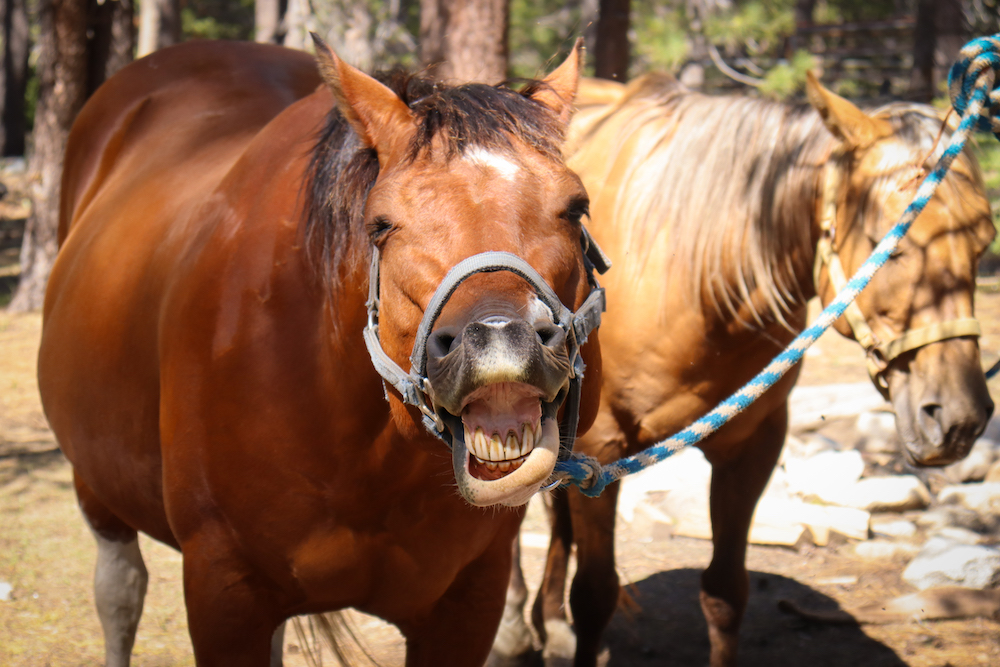
To keep up with our BE YOU theme this summer:
Check your inbox on Monday for our BE YOU weekly email.
Follow GAC on Instagram
(Use hashtag #GACbeyou.)
Be You!
It sounds like such a simple task. After all, aren’t we all just automatically ourselves?
But it’s actually not as simple as it seems. We all feel pressure to fulfill expectations, fit in, go with the flow, look and act a certain way, and do what everyone else is doing.
Sometimes all of that pressure can lead to feelings that we’re not enough just the way we are. Confidence can be eroded when we feel like we’re falling short.
At GAC we believe in encouraging campers and staff to accept and celebrate our own and others’ strengths and unique traits. “Being You” is one of our core values, and many kids tell us that they feel freer to be themselves at camp than in other places. Campers and staff often report that they feel like they can “be themselves” at camp.
Each year, we pick a theme to help guide us through camp. This summer, even though we won’t be together at camp, we’ll be exploring and sharing about what it means to be our true, authentic selves.
We’ll encourage campers to explore what it means to be their “best selves” with questions like these:
- What do I like best about myself?
- What do I really enjoy doing?
- What are my goals?
- What do I dream of doing?
- What are the personality quirks and strengths that make me special?
- How can I be kinder to myself with my “self talk”?
- How can I encourage and support my friends in being their authentic selves?
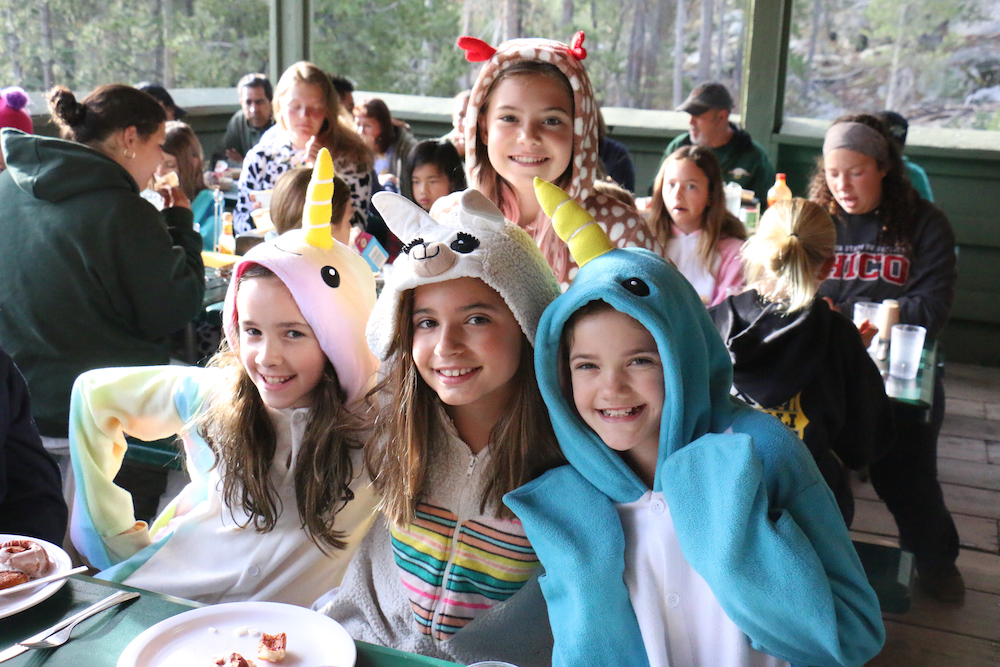
When we spend time talking and thinking about the interests, traits, and strengths that make us who we are, we gain self-awareness, which is an important aspect of emotional intelligence and one that helps us be a better friend to others. Self-awareness also builds our confidence and ability to understand that we don’t need to be an expert or be perfect at everything. No one is!
When we support our friends by pointing out their strengths and the unique, cool things we like about them, we strengthen our friendships, too.
This summer , not only will we be learning about how to be our best selves, we’ll be learning about how to help our friends be their best selves, too!
Our “Be You” theme for 2020 gives us the opportunity to take advantage of our extra time for reflection (because we’re all stuck at home) and reconnect with what makes us awesome just the way we are.
Check out Monkey and Soy’s formal announcement of our theme (back in January, before we knew we’d be stuck at home this summer), complete with many “b” based puns, enjoy this video:
2019 Coach’s Award
In 2009, Gold Arrow Camp lost a dear friend. Ken “Coach” Baker (March 10, 1951 – April 5, 2009) worked at GAC as Camp Assistant Director and Director from 1981-1992 and had a huge, positive impact on many of us who are still here at camp today. Ken was instrumental in helping Sunshine purchase Gold Arrow from Jeanie Vezie in 1989, and mentored Sunshine, Monkey, Woody, Chelster, Tigger, Junior, Trapper, and many other GAC staff during their early years working at camp.
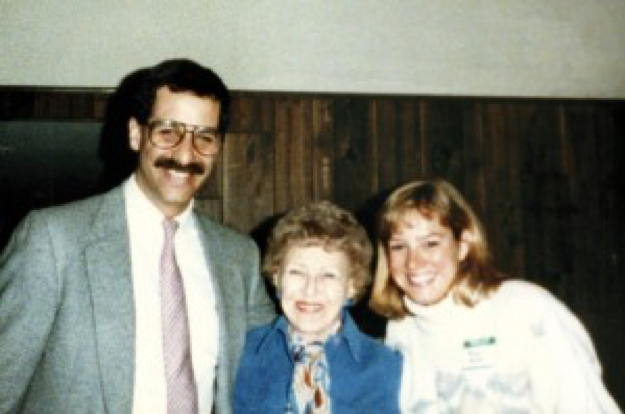
Ken had an amazing way of making even mundane tasks like picking up trash and painting buildings feel monumentally important. He had a way of clapping his hands together and giving a pep talk that got everyone fired up to do their jobs well. Ken had a near-constant smile on his face and took every challenge that came his way in stride. We all knew we could go to him with any problem and he would help us figure out how to fix it.
To honor Ken, in 2009 we established “Coach’s Award.” This award has been given each year since to a leader at camp, nominated by his/her peers, who motivates others through positive leadership and encouraging words and exemplifies Ken “Coach” Baker’s dedication to GAC’s vision.
To select each year’s recipient, we ask the entire staff to complete a nomination form, where they put the name of one person whom they think deserves this honor. They include comments about the person they nominate. We have such a high caliber of staff, many of whom are extremely positive and exemplify what Coach stood for, and we are grateful for the legacy he left us and that so many people at GAC are incredibly positive and motivating to others.
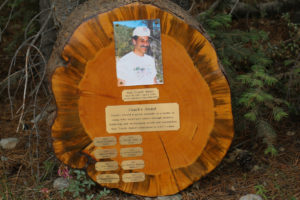
This summer, we had 39 staff members who stood out so much to their peers that they were nominated for this prestigious award. Each of those 39 people made an impact with their positive energy every day at camp.
2019’s recipient, Simba, stood out in those many nominations for his positive leadership and love of camp. His name has been added to Coach’s Award, which hangs in our camp store.
There were many amazing comments about Simba, including:
To me, Simba is someone who always maintains a positive attitude and carries himself as a positive role model for campers at GAC. In my eyes as a first-year counselor, Simba is someone to model themselves off.
Simba has such a genuine love of GAC, and he truly loves his boys as much as he loves the place. I love watching him interact with his cabins and the other campers he talks to. If we’re picking people based on positive leadership, it is hard to pick someone better than Simba. Well done, Simba!
Wow man, you are so good with the kids and staff. You are a friend that I can talk to about anything.

Whenever I see him he has a smile on his face. He makes everyone feel so much better and warms people with his presence. You can tell that he puts a lot of effort into every relationship he has, with staff or a camper. He’s all about making sure his boys are having the best possible GAC experience.
Throughout this summer I have been wildly impressed with how well Simba holds himself, how he acts in the face of a challenge, and how welcoming he is in every situation. I feel like I’ve learned so much about the world and how to value life through talks and watching him live each moment to the fullest. Thank you for being so incredible, I’ll never forget what you’ve taught me.
You have made me a better, more confident person. I have modeled who I want to be as a counselor after you. You have an amazing head, sense of humor, and have never told me a lie. I feel you taught me how to be a part of Valhalla. I love you.
Simba is always encouraging other counselors to stay positive and energetic. He’s a great role model for the boys of 32 and has always found a way to make everything his cabin does enjoyable and a lasting memory.
Simba has been such a positive impact on camp and on his campers. He is super outgoing and fun for others to be around.
Simba truly embodies what it means to motivate others. He carries himself in a way that shows campers that they can be themselves. He encourages confidence, teamwork, and leadership to everyone that he meets!
For being such a positive role model and inspiration to the boys of Valhalla. Everyone in camp looks up to him and personally I aspire to one day make an impact on people in the same way that he does.
One of the greatest people I’ve ever met! He always has a smile on his face. Whenever I see him he gives me a high five. Overall great guy. 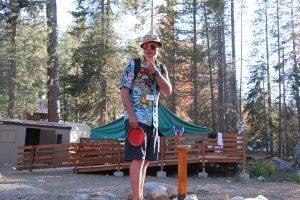
He truly is a pleasure to be around. He is such a warm spirit and truly embraces the values of camp in himself, and in his campers. He lifts my mood and challenges me to be a better staff member, friend, and person myself. I believe that he is one of the most deserving nominees for this award.
His never-ending enthusiasm motivates not only his campers but all the staff around him. He is the most incredible frisbee golf counselor which goes to show that he can make any activity the best activity. Simba inspires me to give more to my campers and live every day to its fullest.
An incredible leader and counselor. Simba is so supportive and creative when working with his cabin. He inspires me to be a better counselor and I am grateful for his friendship and positivity. A true leader.
Simba is always welcoming to all people at camp regardless of who they are or what they do. He is always high energy with his kids and makes sure everyone feels included. He makes sure to engage everyone and makes camp a better place.
Always in good spirits, shows tremendous leadership, spreads the excitement, everyone’s hype man- constantly finding something to laugh about. Overall, he’s a good role model for everyone!
Simba was a leader in camp this year! He made a positive difference to those around him, and camp is a better place now because of his influence.
A boy inside a man’s body. Whenever you see him he’s smiling and joining in with the kids. I couldn’t believe when he said he was only 22. A great GAC role model, and an inspiration for me.
I am so impressed with his ability to lead his campers so well. He is humble, genuine, kind, fun to be around, and hilarious. So many people at camp look up to him because of the way he carries himself and the magic he makes at GAC. I am so thankful he is here and that campers and counselors alike are able to learn from Simba!
CONGRATULATIONS SIMBA!
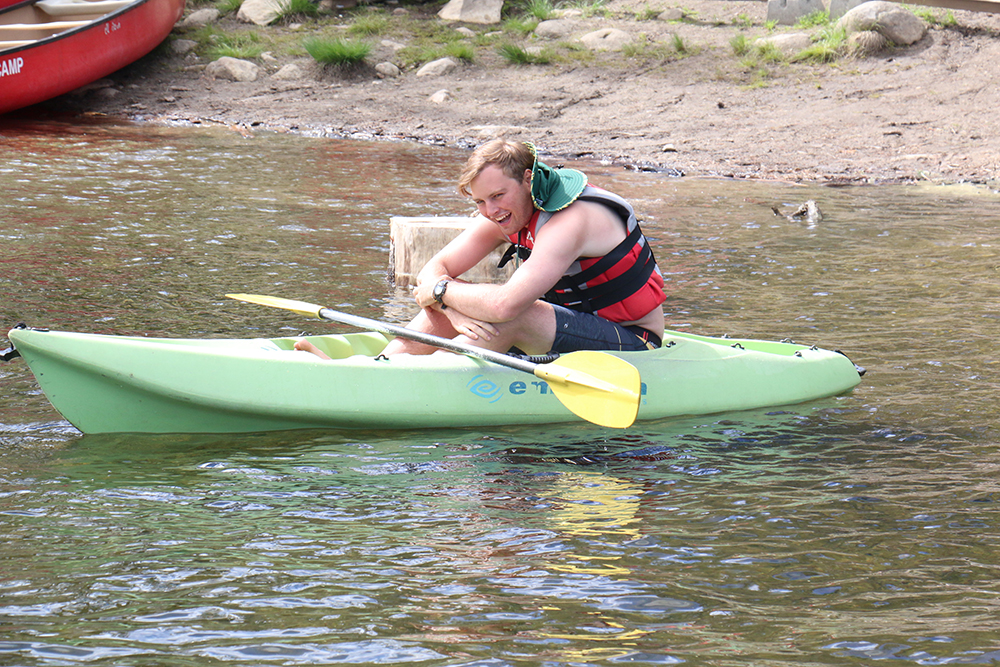
Oyster
Episode 49
Sailing instructor Oyster joins Soy from Leeds University in England. They had a long discussion about the way camp allows campers to really be in charge. They also talked about the benefits of cultural exchange in the J-1 summer camp counselor visa program. Soy shares a friendship tip and a joke of the cast!
Podcast: Play in new window | Download
Subscribe: Apple Podcasts | Spotify | Email | RSS
Magic
Episode 48
On this week’s POG-Cast, Soy and Magic sit down and chat about what camp holds for campers that come back year after year, and how Magic ended up working with a co-counselor she first met when they were both 7! There’s a great Dad joke for the Joke of the Cast, a new friendship theme, and a great GACspiration.
Podcast: Play in new window | Download
Subscribe: Apple Podcasts | Spotify | Email | RSS
